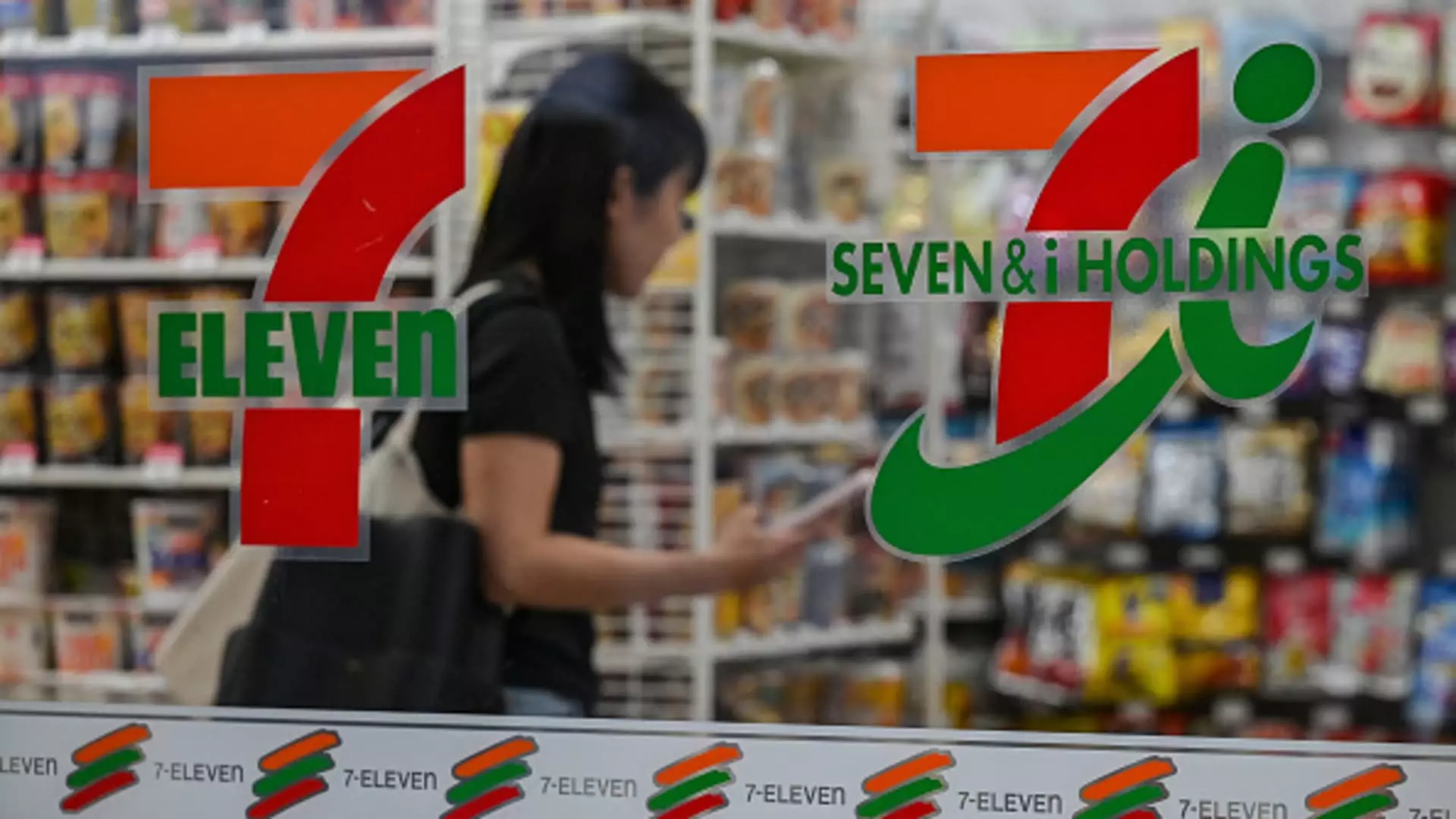The Japanese retail industry is witnessing a seismic shift as significant players navigate financial challenges, with Seven & i Holdings finding itself at a crossroads. The convenience store giant has revised its earnings predictions downward and is actively pursuing restructuring strategies in response to shifting market dynamics and investor pressures. This article delves into the intricacies of Seven & i’s financial landscape, the reasons behind its restructuring efforts, and the potential implications for its future.
In a move reflecting the harsh realities of the current economic climate, Seven & i Holdings has significantly lowered its profit forecast for the fiscal year ending February 2025. The corporation, once predicting a net income of ¥293 billion ($1.95 billion), is now forecasting a mere ¥163 billion ($1.09 billion). This alarming 44.4% decrease comes on the heels of financial results for the first half of the year, where the company reported net profits of ¥52.24 billion against revenues of ¥6.04 trillion. Although sales exceeded expectations, profits fell substantially short of the projected ¥111 billion, highlighting the disconnect between revenue growth and profitability. The ongoing trend of consumers exercising caution in their spending habits—especially in international markets—has compounded these issues, marking a stark shift in consumer behavior.
Faced with stagnating profits and increasing demands from shareholders, Seven & i Holdings is exploring aggressive restructuring strategies aimed at refocusing its operations. One significant component of this strategy is the planned spinoff of non-core businesses into an independent subsidiary. The company has already incurred substantial charges, specifically related to the divestiture of Ito-Yokado Online Supermarket, amounting to ¥45.88 billion. By consolidating its various operations—now totaling 31 units—Seven & i aims to reduce complexity and enhance shareholder value, responding to calls for a trimmed and more efficient portfolio.
This restructuring plan comes amid heightened scrutiny from investors, particularly concerning a potential takeover bid by Canada’s Alimentation Couche-Tard (ACT). The Canadian entity has expressed a strong interest in acquiring Seven & i, escalating tensions as the Japanese retailer claims the initial bid of $14.86 per share was not aligned with its shareholders’ best interests. The rejection of this offer was coupled with concerns about U.S. antitrust implications, showcasing the complexities of cross-border acquisitions in today’s regulatory landscape.
With the unsolicited attention from ACT, the threat of a hostile takeover has become a pressing concern for Seven & i Holdings. In corporate finance, a hostile takeover occurs when an acquiring firm seeks to gain control of a target company without the consent of its management. Nicholas Smith, a strategist at CLSA, suggests that ACT’s increasing bid could lead to attempts at hostile capture if negotiations remain stagnant. Given Japan’s unique legal landscape, companies often resort to defensive tactics, such as “poison pills,” to dilute an acquirer’s potential stake and safeguard their autonomy.
While some analysts argue that an outright hostile bid remains unlikely due to aversion from financial institutions, the prospect cannot be wholly dismissed. Jamie Halse from Senjin Capital has expressed skepticism about the viability of a hostile approach but acknowledges the growing frustration among Seven & i’s shareholders. Without effective negotiation, dissatisfaction with corporate governance could lead to pressure for board changes, compelling management to reconsider their stance in light of mounting dissent.
Navigating through this corporate turbulence, Seven & i’s stock has shown notable resilience, trading at around ¥2,325 as of Thursday’s close. Since the revelations of ACT’s interests emerged in August, shares have rallied over 33%, indicating that the market is cautiously optimistic about the potential benefits that could arise from the engagement with ACT, despite the uncertainties surrounding the takeover dynamics. The newly revised bid of $18.19 per share implies a 53% premium to pre-offer trading levels, signaling ACT’s commitment to securing a significant position in the Japanese retail market.
Investors must weigh the allure of immediate monetary gains against the broader implications for the company’s operational integrity and strategic vision. Jesper Koll, head of Japan at Monex Group, aptly captures the sentiment, recognizing the balanced equation facing shareholders—the financial incentive holds weight, but the long-term strategic direction warrants equal consideration.
The current phase for Seven & i Holdings encapsulates the challenges facing many traditional retailers amid the evolving landscape of consumer behavior and corporate governance. With its revised profit forecast and ongoing restructuring initiatives, the company’s future hangs in a delicate balance influenced by both internal decisions and external pressures. The potential for takeover attempts, shareholder discontent, and the need for strategic refocusing set the stage for a transformative period in the company’s history. Moving forward, how Seven & i navigates these tumultuous waters will have lasting implications for its market position and operational effectiveness. The outcome remains uncertain, but the stakes are high, making it a critical juncture for the iconic retailer.

